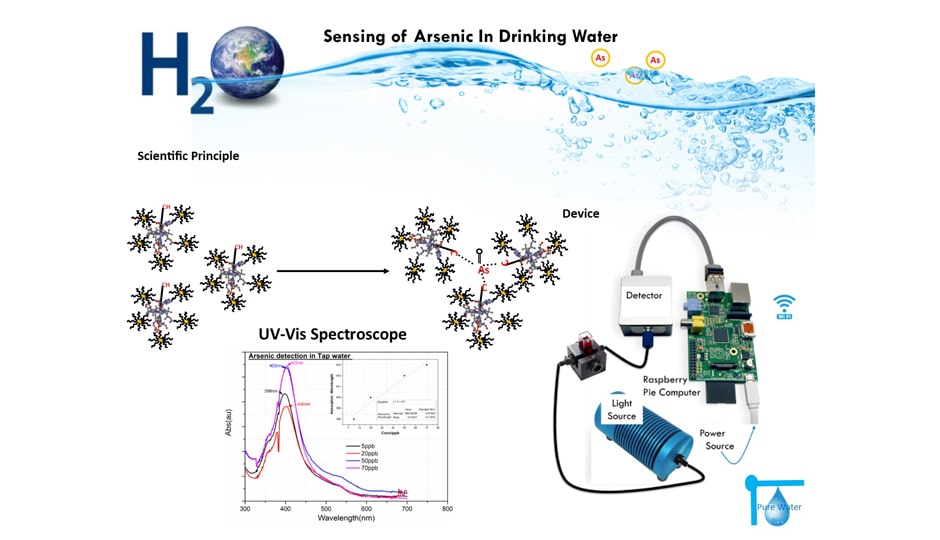
Detection and sensing of arsenic in drinking water
PI: Prof. Rajdip Bandyopadhyaya, Chemical Engineering Department
Tata Fellow: Prithwish Biswas (2016-18), Satya Prakash (2019-21)

Focusing on contamination, arsenic is a major problem leading to health hazards in major areas of India and other nations. The arsenic poisoning is not only limited to a developing country but the large population is exposed to arsenic in many developed countries like USA and Canada. The proposed work in this project will investigate the method of arsenic detection and measurement. Various sensing techniques are reported; however, all suffer from the specificity problem when analyzing real samples. There is a large interference due to other ions. Thus the need of the hour is to develop a highly specific sensing platform that can do the sensing of arsenic automatically, without the need of any experts. Based on the success of this project, we will go into partnering with other organizations or implementing it for specific target groups.


